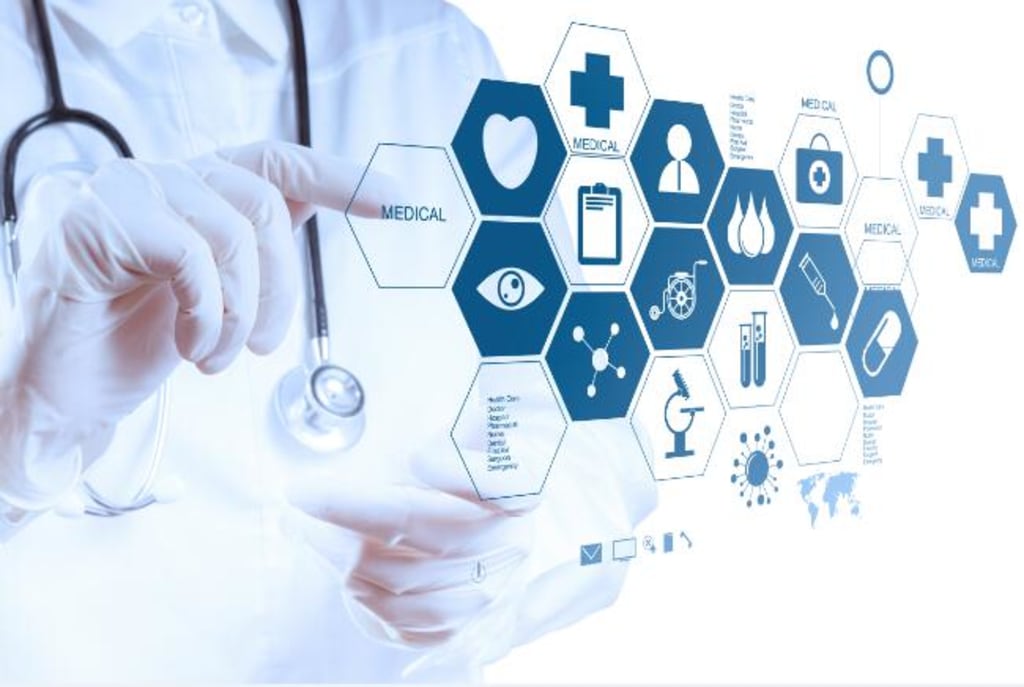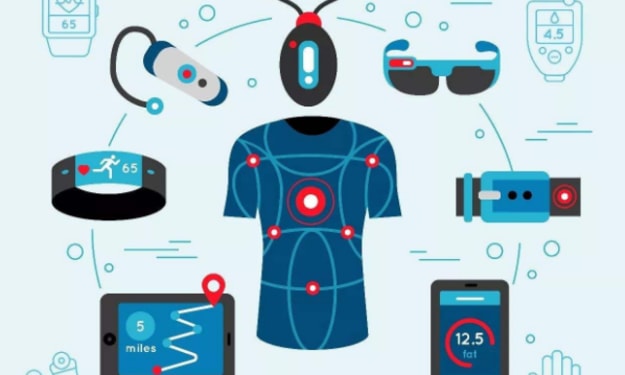
The healthcare industry is undergoing a significant transformation, driven by technological advancements and the growing integration of connected devices. The Internet of Medical Things (IoMT) is revolutionizing healthcare by leveraging the power of interconnected devices, data analytics, and artificial intelligence. This article explores the IoMT's impact on healthcare delivery, patient monitoring, diagnostics, treatment, and challenges in its implementation.
1. Understanding the Internet of Medical Things (IoMT)
The IoMT refers to the network of medical devices, wearables, sensors, and software applications that collect and exchange health-related data through the internet. These interconnected devices enable the seamless integration of data, enabling healthcare professionals to make informed decisions, improve patient outcomes, and enhance the overall efficiency of healthcare systems.
2. Advancements in Healthcare Delivery
The IoMT has transformed healthcare delivery by enabling remote patient monitoring, telemedicine, and virtual healthcare services. Connected devices, such as wearable fitness trackers and smartwatches, allow individuals to monitor their vital signs, activity levels, and sleep patterns in real-time. Healthcare providers can remotely access this data, identify potential health issues, and provide personalized interventions, reducing the need for in-person visits and improving patient access to care.
3. Enhanced Patient Monitoring
IoMT devices offer continuous patient monitoring, ensuring timely interventions and improving patient safety. For instance, smart sensors embedded in hospital beds can monitor patients' movements, vital signs, and alert healthcare providers of any potential risks, such as falls or changes in heart rate. This real-time monitoring facilitates proactive care and reduces the risk of adverse events.
4. Transforming Diagnostics and Treatment
The IoMT is revolutionizing the field of diagnostics and treatment through connected medical devices. For example, wearable biosensors can collect data on glucose levels, blood pressure, and ECG readings, providing valuable insights for individuals with chronic conditions like diabetes or hypertension. This data can be transmitted to healthcare providers, who can remotely monitor patients' conditions, make adjustments to treatment plans, and provide timely interventions.
5. Leveraging Data Analytics and Artificial Intelligence
The IoMT generates a vast amount of healthcare data, which, when analyzed using advanced algorithms and artificial intelligence (AI), can uncover valuable insights and improve decision-making. Data analytics can identify patterns, predict disease outbreaks, and optimize resource allocation within healthcare systems. AI-powered algorithms can assist healthcare professionals in diagnosing diseases, recommending treatment plans, and even predicting patient outcomes.
6. Addressing Challenges and Concerns
Implementing the IoMT in healthcare comes with its own set of challenges. Data privacy and security are paramount, as the transmission and storage of sensitive patient information must be protected from cyber threats. Interoperability and standardization of devices and systems are crucial for seamless data exchange and integration. Additionally, healthcare professionals need proper training and education to effectively utilize the IoMT technologies and leverage the full potential they offer.
7. Future Applications of IoMT
As the IoMT continues to evolve, new applications are emerging that have the potential to further revolutionize healthcare. Some of these future applications include:
a) Predictive Analytics: By analyzing large datasets collected from IoMT devices, predictive analytics can identify patterns and trends that can help predict and prevent adverse health events. For example, algorithms can detect early signs of diseases such as heart attacks or strokes based on subtle changes in vital signs, allowing healthcare providers to intervene before a critical event occurs.
b) Remote Surgeries and Robotic Assistance: The IoMT can enable remote surgeries by connecting surgical robots with expert surgeons who can operate on patients from a distant location. This technology has the potential to provide specialized surgical expertise to remote areas or during emergencies, minimizing the need for patient transfers and reducing surgical wait times.
c) Personalized Medicine: By integrating genomic data with IoMT devices, healthcare professionals can gain insights into an individual's genetic predispositions and tailor treatments accordingly. This personalized approach can lead to more effective and targeted therapies, improving patient outcomes and reducing adverse reactions to medications.
d) Population Health Management: The IoMT can contribute to population health management by monitoring health trends and disease prevalence in real-time. This information can help public health officials identify and respond to outbreaks quickly, allocate resources efficiently, and implement preventive measures to improve public health on a larger scale.
8. Ethical and Regulatory Considerations
As with any technology that involves personal health data, ethical and regulatory considerations are paramount. Healthcare organizations and technology providers must ensure compliance with privacy regulations, such as HIPAA (Health Insurance Portability and Accountability Act), to protect patient confidentiality and prevent unauthorized access to sensitive data. Additionally, transparent consent procedures should be implemented to ensure that individuals understand the risks and benefits of participating in IoMT programs.
9. Collaboration and Interoperability
To fully realize the potential of the IoMT, collaboration and interoperability among different devices, platforms, and healthcare systems are vital. Standardization efforts, such as the development of common protocols and data exchange formats, are necessary to enable seamless communication and integration of IoMT devices. This collaboration will facilitate comprehensive patient care, as healthcare providers can access a holistic view of a patient's health data from various sources.
10. The Road Ahead
The Internet of Medical Things is poised to revolutionize healthcare, offering improved patient monitoring, enhanced diagnostics, and personalized treatment options. As technology continues to advance, the IoMT will become even more sophisticated and integrated into our healthcare systems. However, it is essential to balance technological advancements with ethical considerations, data security, and regulatory frameworks to ensure patient privacy and safety.
In conclusion, the Internet of Medical Things holds great promise in revolutionizing healthcare. With its ability to connect medical devices, collect real-time health data, and leverage advanced analytics, the IoMT has the potential to improve patient outcomes, increase access to care, and transform healthcare delivery. By addressing challenges, ensuring data privacy and security, fostering collaboration, and prioritizing patient-centric care, we can harness the full potential of the IoMT and create a future where healthcare is more proactive, personalized, and effective.





Comments (1)
Thank you for shedding light on the transformative power of the Internet of Medical Things (IoMT) in revolutionizing healthcare delivery! Your article provides valuable insights into how interconnected devices, data analytics, and AI are shaping the future of healthcare. For those interested in delving deeper into this topic, I'd recommend checking out this insightful post: https://www.cleveroad.com/blog/medical-device-integration/. It offers additional perspectives on medical device integration, complementing the discussion on IoMT nicely.